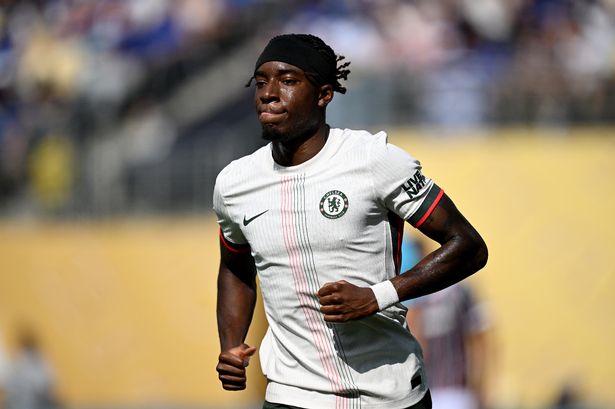In the complex world of football transfers, certain moves catch the eye not just for their financial scale, but for their apparent contradiction of a club`s stated philosophy. Recent reports suggesting Chelsea are engaged in talks to sell winger Noni Madueke to London rivals Arsenal fall firmly into this category. With a reported fee approaching $70 million – a significant profit on the amount paid to PSV Eindhoven just over 18 months ago – the transaction might seem like shrewd business on paper. However, a deeper technical analysis suggests this move would represent a curious deviation from Chelsea`s long-term strategy and risks offloading a player hitting a crucial upward performance curve.
Chelsea`s ownership, led by Todd Boehly, has repeatedly articulated a vision centered on acquiring and developing a young core of players intended to grow together over an extended period. Noni Madueke, at 23, fits this profile perfectly. He was brought in as a high-potential prospect, and the expectation was that he would be nurtured into a key component of this future team. Considering a sale now, especially to a direct competitor, raises immediate questions about the conviction behind this stated strategy.
Madueke`s Ascending Trajectory: The Data Speaks
While raw goal and assist numbers (11 goals, 5 assists in 46 appearances across all competitions last season) might not immediately scream `untouchable,` a dive into the underlying data paints a picture of a player whose effectiveness significantly improved during the 2024-25 campaign. Despite slightly underperforming his non-penalty expected goals (npxG) and expected assisted goals (xAG), Madueke showcased elite traits that are highly valued in modern wide forwards.
Perhaps most notably, Madueke became a volume shooter, averaging approximately 3.5 shots per 90 minutes in the Premier League. This figure placed him among the very highest in his position, even exceeding prolific wide players like Bukayo Saka and Mohamed Salah in terms of shot frequency. Crucially, the quality of these shots also saw a marked improvement, with his npxG per shot doubling from the previous season. This indicates he was not merely firing speculative efforts but consistently getting into more dangerous positions within the penalty area.
Beyond shooting, Madueke demonstrated exceptional ball-carrying ability. His progressive carries ranked him among the Premier League`s elite wingers, a skill vital for breaking down defenses and advancing play. Interestingly, comparisons drawn to Manchester City`s dynamic duo of Savinho and Jeremy Doku highlighted Madueke`s similar prowess in this area, while also noting his superior goal return during the observed period.
Yes, the `eye test` – that subjective appraisal beloved by traditionalists – might occasionally point to instances of Madueke running into cul-de-sacs or making questionable decisions. But the data suggests these moments were offset by consistent, high-value actions. His expected possession value added metrics remained high, underlining his positive impact on the team`s ability to create opportunities and progress play, even when the final pass or shot didn`t immediately result in a goal or assist. To put it plainly, he consistently put himself and his team in positions to succeed.
The Paradoxical Position for Chelsea
Given this data-backed evidence of Madueke`s development and increasing on-field value, why would Chelsea entertain selling him, particularly to a rival? The often-cited reasons revolve around attitude and work rate concerns. Public remarks from manager Enzo Maresca last season, critical of Madueke`s consistency in training and perceived lack of ambition after scoring, highlighted these issues. The infamous penalty incident with Cole Palmer also fueled narratives about his temperament.
However, it`s worth noting that Madueke`s significant statistical improvements occurred *concurrently* with these reported attitude issues. This suggests that either the concerns were overstated in terms of their impact on match performance, or the player was maturing and improving despite internal challenges. Cashing in on a player *just* as he is demonstrating tangible, data-driven progress due to personality quirks seems, at best, premature.
The alternative argument for Chelsea is the significant transfer fee provides capital to reinvest elsewhere. The idea of using $70 million to pursue established stars like Rodrygo or Bradley Barcola, or even younger, potentially high-upside players like Jamie Gittens or Joao Pedro, has its appeal. However, as analytical models often suggest, the success rate of new transfers, even seemingly high-quality ones, is far from guaranteed – sometimes cited as close to a 50/50 proposition.
In contrast, Madueke is a player already integrated, demonstrating clear improvement within the Premier League environment. He represents a known quantity whose value metrics are trending upwards. Replacing his output and potential requires navigating the inherent uncertainty of the transfer market. Selling a proven, developing asset to fund a roll of the dice on someone new, particularly someone who might offer different strengths but less immediate statistical impact (like Jamie Gittens based on previous Bundesliga numbers), feels like a speculative move contradicting the principle of building a stable, long-term young core.
Conclusion: A Gamble Against Their Own Game Plan?
For Chelsea, offloading Noni Madueke to Arsenal for a substantial fee might provide a short-term financial boost and potentially resolve internal attitude management issues. However, it appears to be a move fundamentally at odds with their publicly declared strategy of cultivating young talent into elite players. The data suggests Madueke is precisely the kind of player they should be developing – one whose underlying numbers point to significant present value and future potential.
Should Madueke continue on his current performance trajectory at Arsenal (or anywhere else), showcasing elite shot generation and ball carrying, Chelsea may look back on this decision as a significant missed opportunity – not just financially, but in undermining the very foundation they claimed to be building upon. Sometimes, the biggest mistake is selling the asset that`s finally appreciating, especially when it perfectly fits the portfolio you intended to create.

